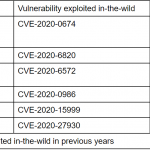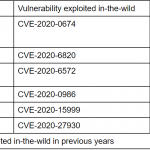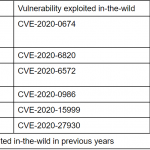Posted inTop News
Microsoft patches actively exploited Windows kernel flaw
This month’s relatively humble bundle of security updates fixes 56 vulnerabilities, including a zero-day bug and 11 flaws rated as critical Yesterday was the second Tuesday of the month, which means that Microsoft is rolling out patches for security vulnerabilities found in Windows and its other products. This year’s second batch of security updates brings…










